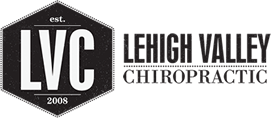Groin Strain (Adductor Muscle Strain)
What is Groin Strain?
A groin strain (otherwise known as adductor muscle strain or tear) is an injury to the one or more of the muscles that are collectively known as the adductors. The pectineus, adductor longus, adductor brevis, adductor magnus and gracilis are located at on the inner part of the thigh. The muscles work together to adduct (or approximate the thigh) toward the midline (toward to opposite thigh). One or more of these muscles are commonly injured in sports that require explosive and dynamic movements such as sprinting, hurdling, basketball, field hockey, ice hockey, soccer, or football. In addition to ballistic movements, repetitive stress (engaging in the same movement over and over) injuries of this muscle group are also common. Injuries may be acute (sudden onset), or they may be chronic (especially seen in athletes who consistently stress the area). This type of injury may result in mild pain and limited disability or may cause severe pain and debilitation. If you are suffering from a groin strain, you will feel discomfort (ranging from a dull ache to a sharp pain) in the inner part of the thigh. Often, movement is difficult and you may notice weakness. Your groin strain may prevent you from engaging in the activities you enjoy. Proper warm-up, stretching and conditioning of the muscles may prevent the injury. In the event that you are suffering from this type of injury, the chiropractors at Lehigh Valley Chiropractic provide strategies for optimum athletic performance that will speed recovery and prevent recurrence.
Our treatment methods speed tissue recovery and increase performance–meaning less down-time for you.
-Dr Scott Bentson
How is Groin Strain diagnosed?
Groin strains are classified by a grading system. A grade of 1 means there are micro-tears that have occurred within the muscle which cause pain and tightness in the inner part of the thigh. Generally there is little visual evidence of the injury (swelling, bruising, or redness). Grade 2 injuries are characterized by a loss of muscle strength against resistance due to a partial tear. Swelling, stiffness, decreased range of motion, and bruising are often present. With a grade 3 injury, there is a complete tear of muscle fibers which causes a great deal of pain and complete weakness. Inability to walk, discoloration, bruising and a bulge of muscle (where the tear occurred) are characteristic of grade 3.
Generally, groin strains are diagnosed by history and physical examination. The chiropractors at Lehigh Valley Chiropractic will ask you questions about the mechanism of your injury and perform orthopedic tests to evaluate the condition. In certain cases an MRI or other tests will be ordered to determine the extent of the injury.
What Are the Options for Treating Groin Strain?
Groin strains are commonly treated at Lehigh Valley Chiropractic. Depending on the extent of the injury, you will be provided with a treatment plan that will include Active Release Technique (ART), myofascial release, kinesiotaping, ultrasound and therapeutic exercise. ART is a unique soft tissue treatment that will enable the injury to heal faster and allow you to perform at your peak. Your chiropractor may also recommend P.R.I.C.E. (protection, rest, ice, compression and elevation) which will enable you to heal more quickly. In the event that a full muscle tear (grade 3 injury) is suspected, you will be referred to the appropriate health care provider. Many active patients have reaped the benefits of chiropractic care. Don’t let a pulled groin keep you down! Get back in the game with the help of the LVC chiropractors.
- Diagnosis and management of adhesive capsulitis. Manske RC, Prohaska D.Curr Rev Musculoskelet Med. 2008 Dec;1(3-4):180-9.A rational management of tennis elbow. Kamien M. Sports Med. 1990 Mar;9(3):173-91. Review.
- Comparison of the early response to two methods of rehabilitation in adhesive capsulitis. Guler-Uysal F, Kozanoglu E. Swiss Med Wkly. 2004 Jun 12;134(23-24):353-8.

 610-868-6800
610-868-6800



